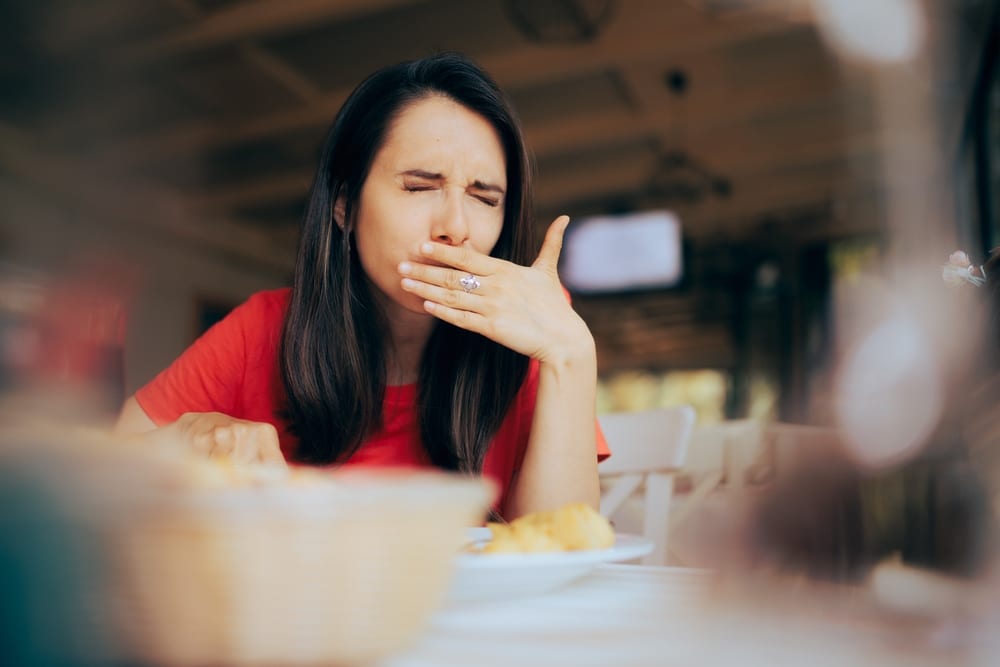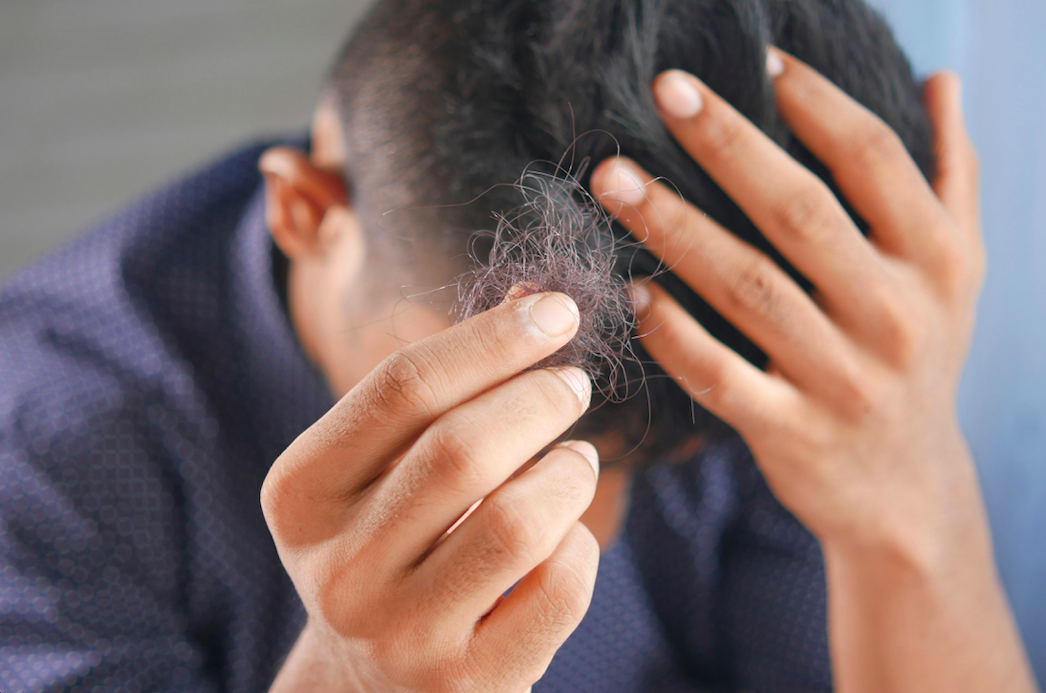Is falling asleep after eating a sign of diabetes? Let’s find out with this article. There are several types of research done to understand why it is common for people to get sleepy after eating. One of the studies shows that dietary choice is one of the increasing evidence associated with fatigue and sleepiness. Food affects energy levels mainly due to the change it causes in blood flow, hormones, blood sugar levels and brain chemicals. Many other factors cause low energy levels after eating.
Falling asleep after eating can be a sign of diabetes in some cases because fatigue is one of the most common signs of high blood glucose. However, many people who don’t have diabetes can also experience a change in their energy levels after eating. The reason for this is the blood sugar response to what you eat.
When someone has diabetes, their body cannot properly process sugar from food. This can lead to an overload of sugar in your bloodstream and leave you feeling excessively tired and sleepy. Additionally, people with diabetes may also have difficulty concentrating or staying awake for long periods of time, as diabetes can cause hormonal changes and mood shifts.
What are the Symptoms of Diabetes?
The most common symptoms of diabetes are increased thirst, frequent urination, extreme hunger, blurry vision, and fatigue. Other signs can include weight loss or gain, wounds that heal slowly, tingling in the hands and feet, itching skin around the genital area and dark patches on the skin. If you experience any of these symptoms, along with falling asleep after eating, it’s important to talk with your doctor and get tested for diabetes.
The Link Between Sleepiness and Diabetes
Is falling asleep after eating a sign of diabetes? It could be a symptom of various conditions. It is important to note that feeling sleepy after eating can be caused by other conditions, such as hypoglycemia or even overeating. Therefore, if you regularly feel tired after meals, it is best to consult a medical professional for further evaluation. A doctor may recommend tests to determine whether diabetes or another underlying condition is the cause of your symptoms.
How Diabetes Affects Blood Sugar Levels
Is Post-Meal Drowsiness a Diabetes Symptom?
Which Foods Cause Fatigue After Eating?
Carbohydrates are the main culprits when it comes to fatigue after eating. Foods that contain refined sugars, such as white bread and pastries, can cause a sudden rise in blood sugar levels, followed by an energy crash.
Eating too much of these foods over time can also increase your risk of developing diabetes. To avoid this, try to limit your sugary and processed foods intake and opt for complex carbohydrates such as multi-grain bread, oats, quinoa and brown rice. Additionally, make sure to include plenty of fiber-rich vegetables in your diet.

Managing After-Meal Fatigue with Diabetes
Being so common among diabetic people, daily fatigue is one of the most draining effects of diabetes. Even for people who do not live with diabetes, it is widely common to experience fatigue and heaviness after meals. This problem is tougher on diabetic people and can make them sleepy, insecure, overweight and more. Here is what you can do if you are experiencing fatigue after meals, especially dinner:
- Try to sleep 7 to 9 hours of sleep at night: It is better to give your body enough time to digest and process the food you eat during the day. Sleeping minimum of 7 hours of sleep helps us start each day with a renewed system.
- Regular Exercise: You do not have to run miles or lift heavy. Just a short walk or cycling after dinner can help you regulate your hormones, help with digestion and make you feel recharged.
- Eliminate processed foods and sugar: Raising blood glucose levels with carbs or sugar is not the best idea for diabetics. Sticking to a diet structured by whole foods will help you stay energized longer.Drink less alcohol, or avoid drinking at all
- Drink caffeine in moderation: A cup of coffee can be the first thing that pops in your mind while feeling sleepy and tired but in the long run its effects are the opposite.
- Yoga, meditation and mindfulness techniques can always help: Stress management is the meeting point of reversing diabetes and regulating energy levels. You can complement your enhanced eating and sleeping habits with mindfulness techniques, breath exercises, mindful eating practices, and more.
Is falling asleep after eating a sign of diabetes: Conclusion
In conclusion, falling asleep after eating may be a sign of diabetes, but it’s not definitive. If you experience regular fatigue or frequent sleepiness after meals, consult your doctor to rule out any underlying health issues and check your blood sugar regularly. Taking steps to manage diabetes and its symptoms can help ensure you have the energy you need to stay active and alert throughout the day.
If you want to manage type 2 diabetes
If type 2 diabetes is present, a treatment plan can be created to help you manage the condition and its symptoms. By making healthy lifestyle changes such as regular exercise, eating nutritious meals, and reducing stress levels, you may be able to maintain blood sugar levels and reduce your risk of developing diabetes-related complications.
To understand if falling asleep after eating is a sign of diabetes or not, you should get tested for diabetes. That’s why it is important to take any signs or symptoms of diabetes seriously and seek medical attention as soon as possible. Following your doctor’s advice and actively managing the condition can help you live a healthier and more comfortable life.
If you’re experiencing fatigue or exhaustion, it’s important to take good care of yourself and seek medical advice if needed. Eating healthy and getting plenty of rest is a great start towards feeling energised and well balanced. Taking care of your health now can help promote a better quality of life.
Learn About Reverse Your Diabetes Program at TheLifeCo
Frequently asked questions about sleep and diabetes
Why do I fall asleep immediately after eating?
Sleepiness after eating can be due to many factors, including increased blood flow to the digestive system during digestion, activation of the parasympathetic nervous system, insulin release, and the production of serotonin and melatonin. Eating large meals and dehydration may also contribute. Engaging in light activity and eating balanced meals can help manage.
Why does a diabetic person get sleepy after eating?
In a person with diabetes, blood sugar rises and falls quickly after a meal. In both cases, this causes low energy and makes us sleepy. It may be a sign of hypoglycemia and hyperglycemia, so you should consult a doctor.
What does diabetes fatigue feel like?
Diabetic fatigue can cause a constant lack of energy, weakness, and drowsiness. In addition, it can cause us to constantly feel reluctant, unmotivated, sick and exhausted.
Why do I fall asleep right after eating?
You may have insulin resistance, which can cause sudden blood sugar fluctuations after a meal and cause your energy to decrease. We may feel weak because our body consumes energy for digestion. Our tryptophan level may increase, which can accelerate our sleep state.
Why do I feel tired after eating anything?
Since we spend energy on digestion after a meal, it is normal for our energy to decrease slightly. However, if you experience frequent and significant fatigue after eating, consulting a doctor to prevent insulin resistance may be helpful.
Is it good to nap after you eat?
The side effects of sleeping after eating include negative digestion symptoms, possible weight gain, and disrupted sleep patterns. But some food, such as kiwi or protein shakes, were proven to benefit sleep quality.
How do I know I am pre diabetic?
Frequent urination, thirst, fatigue, and blurred vision are common signs of prediabetes. If these symptoms apply to you, consider seeing a medical professional and taking preventative steps.
What are 10 warning signs of diabetes?
10 important and common signs of diabetes are:
1- Frequent urination
2- Increased thirst
3- Unexplained weight loss
4- Fatigue and weakness
5- Blurred vision
6- Slow-healing wounds or infections
7- Tingling or numbness in hands or feet
8- Increased hunger
9- Recurring skin infections
10- Darkened patches of skin
How do I know if am diabetic?
If you experience warning signs of diabetes for a long time, have a family history, are overweight, or have a sedentary life, consider getting a test through your doctor.
How do I feel if I'm diabetic?
Tiredness and feeling weaker than usual are common among diabetic people. Also, getting easily irritated and having drastic mood changes was reported. If you have any of these signs, consider having a blood sugar measurement at a medical clinic.
Why are diabetics sleepy?
Insulin is important for the body’s energy levels. When blood sugar levels are high, the body struggles to use glucose as an energy resource.
How do diabetics feel after eating?
People with diabetes may experience problems such as extreme fatigue, blurred vision, headache, and drowsiness after eating if they don’t follow a diabetic diet.
What are the 3 most common symptoms of undiagnosed diabetes?
If you feel constantly thirsty, if you’re losing weight but don’t know why, or if you continually feel tired, these may be three of the most common symptoms of diabetes. However, symptoms may vary from person to person.
How do you feel when your blood sugar is too high?
You may feel nauseous, sudden fatigue, abdominal pain, and a faster heartbeat.
What does diabetic urine look like?
It is very difficult to distinguish diabetic urine from the outside. However, if you have symptoms such as intense urine odor or cloudy urine, consult a doctor.
Why do I want to sleep all the time and have no energy?
Sleepiness and low energy levels may be caused by various factors. Firstly, fluctuations in blood sugar levels of diabetes patients can make them feel tired. Insulin resistance may impede cell glucose uptake, leading to reduced energy stock. Also, diabetes can cause nutrient deficiencies, further affecting energy levels.
Should you rest after eating?
Laying down right after eating can slow the digestion process. After a full meal, it is recommended to spend at least 2-3 hours in a more active mode.
How long should you wait to sleep after eating?
Spend at least 2-3 hours before going to bed after eating. But the best is to avoid eating after 6-7 pm and practice intermittent fasting as much as possible.
What foods should you avoid to make you sleepy?
Caffeinated drinks, heavy, fatty foods, and high-sugar foods and drinks can disturb your sleep if taken before bedtime, as the body spends a lot of energy on foods that are difficult to digest.
How long is a power nap?
A power nap should give you the energy boost you need but should not take you to a deep level of sleep. 10-30 minutes is ideal for a daily power nap.



